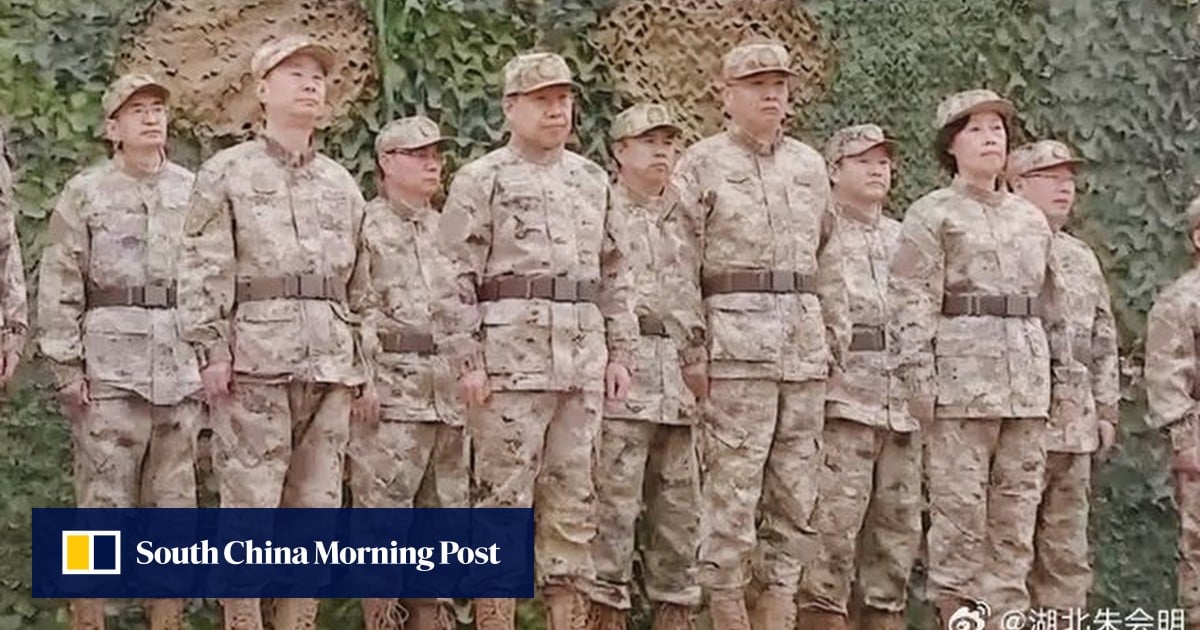Although such military reviews are regular events, one former cadre said the aim of such appearances was to keep people alert to security threats and warn civilian officials not to let their guard down.
China sends upgraded uniforms for troops at South China Sea outposts
China sends upgraded uniforms for troops at South China Sea outposts
Earlier this month, Wang Xiaohui, Communist Party secretary of Sichuan, and a handful of his subordinates appeared in camouflage uniforms displaying no marks of rank or other insignia to inspect People’s Liberation Army troops at a provincial “defence day” event at a base in the capital Chengdu.
They changed into the uniforms following a provincial military affairs meeting, where Wang urged civilian officials to continue to help the military and strengthen national defence education, according to a report on Sichuan’s official broadcaster’s primetime bulletin.
The meeting also heard from the Sichuan military region’s political commissar Tian Xiaowei about the building of national defence reserve forces in the province.
In recent months provincial party mouthpieces have reported on similar events, including another “defence day” in Gansu and meetings in Guangdong and Guizhou to review military mobilisation and military-civilian integration.
Deng Yuwen, a former deputy editor of Study Times, official newspaper of the Central Party School where cadres are trained, said the recent appearances of civilian officials in military uniforms were intended to remind society that China should not let its guard down.
Why Chinese students have to start their studies in the military
Why Chinese students have to start their studies in the military
In the case of disaster relief or riot control, they have to escalate the request to the highest command level, the Central Military Commission. Meanwhile, they are expected to play a support role to the local military in areas such as recruitment and support for veterans and serving troops.
The political commissars of the provincial military region, such as Sichuan’s Tian, also sit on the local party’s standing committee as an observer.
This arrangement, which dates back to the founding of the People’s Republic in 1949, is designed to improve communications between military and civilian officials and help mobilise forces in case of emergency.
‘Red education’ history tours spark Chinese communist cosplay craze
‘Red education’ history tours spark Chinese communist cosplay craze
The PLA has about 2 million soldiers, making China the country with the largest number of active soldiers in the world. It also has 8 million militiamen serving as a wartime reserve.
Past records show that the provincial or municipal party committees hold military affairs meetings every six months, while county-level meetings are held every quarter.







